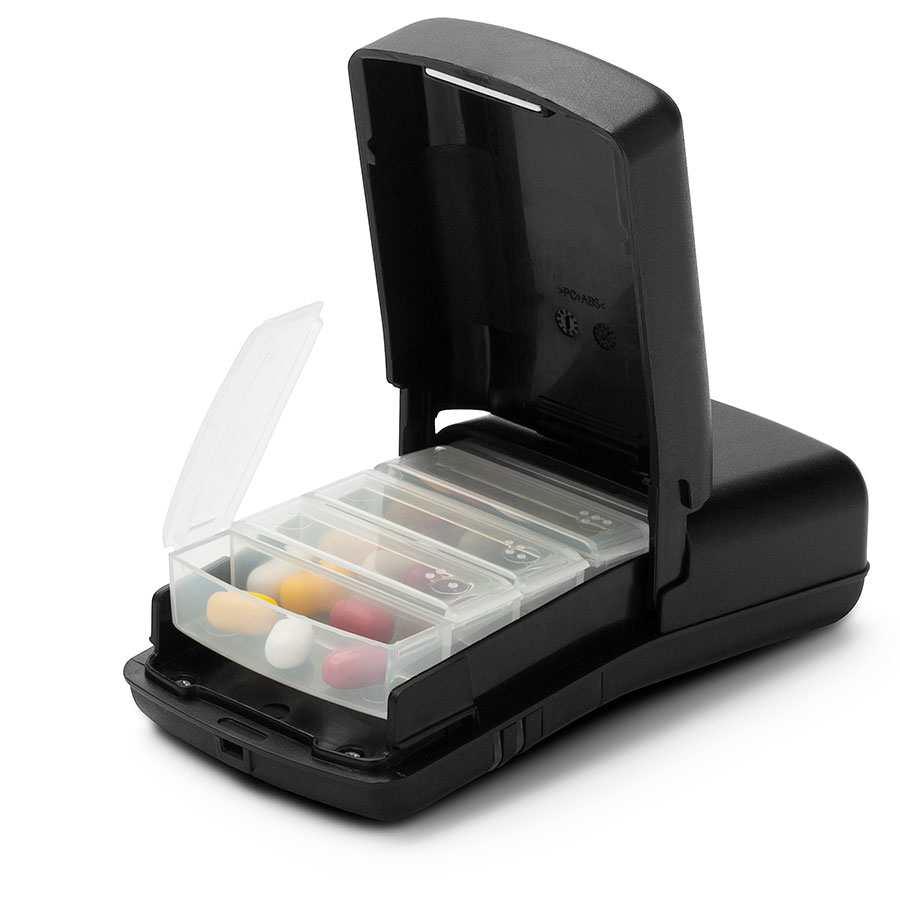For many patients it can be difficult to take medication according to the schedule that the doctor has prescribed. Taking a pill daily at breakfast is usually still possible, but it becomes more difficult when there are schedules where the intake of medication is irregular. Or if a three-month break is inserted, after which the patient himself has to start taking the medication again. But even when patients have no complaints, suffer from side effects of the medication or simply forget it, therapy adherence is a difficult task. IoT offers a solution for this problem. There are many devices on the market that offer assistance with therapy adherence. Most of these are simple dispensers that give an alarm when the medication is to be taken. A study published in JAMA Internal Medicine says that these simple devices did not improve therapy adherence. A multilateral approach is needed, in which the combination of remembering the intake by means of a smart dispenser and continuous monitoring and support by a healthcare professional are central.
Reasons for non-adherence
Miriam van de Loo, director of Brocacef Maatmedicatie, says in the newspaper De Stad Amersfoort: “We are talking about thirty to forty percent of the drug users. The percentage is even higher for people with long-term illnesses, up to seventy percent. ” Forgetting the intake is a common cause of therapy infidelity. When many different types of medication have to be swallowed, people forget a pill faster. This also applies when there are irregular schedules associated with medication intake, for which a period the medication must be taken and a period not to be taken. In addition, the medicine user may think that medication is not necessary if there are no complaints. The side effects of the medication also ensure that people no longer take the prescribed pills. Finally, patients stop taking their medication early because they think they are already cured, while it is important to keep taking the medication. To combat these problems, Evalan has developed an IoT solution that promotes adherence to therapy: Sensemedic.
Smart medication dispenser that monitors intake behavior
Evalan has developed a smart medication dispenser for AstraZeneca to monitor and improve therapy adherence. Sensemedic monitors intake behavior in real time and remotely. It operates independently; the patient only needs to take the medication without having to connect the dispenser to a telephone or an app. The medicine box has several compartments that are filled depending on the treatment. The sensor measures when a medicine is removed from the dispenser and when a new medicine is added. This means that the patient’s adherence with therapy can be accurately determined. The healthcare professional can view the data and thus guide and support the patient in a more targeted manner.
Reminder by SMS
Sensemedic reminds patients to take the medicines through a text message. Based
on the real-time measurement data, Sensemedic can recognize when the patient
has not taken the medication. Only when the patient has forgotten a pill, a
text message sent. These text messages are automatically sent within one hour
of the elapsed intake time.
Implementation in Albert Schweitzer hospital
Sensemedic was implemented four years ago in the Albert Schweitzer Hospital (ASz) in Dordrecht. Two hundred patients use the medication dispensers, making it clear that the smart medicine box has a good influence on the intake of medicines. In addition, guidance from healthcare professionals is important. Only good cooperation between the patient, the healthcare professional and the product leads to a positive outcome of therapy adherence. The implementation of Sensemedic was part of a larger project of the ASz, the GLOBAS project. The aim of this project was to tailor the treatment and guidance of patients taking chemotherapy tablets to the individual and thus improve the results.
